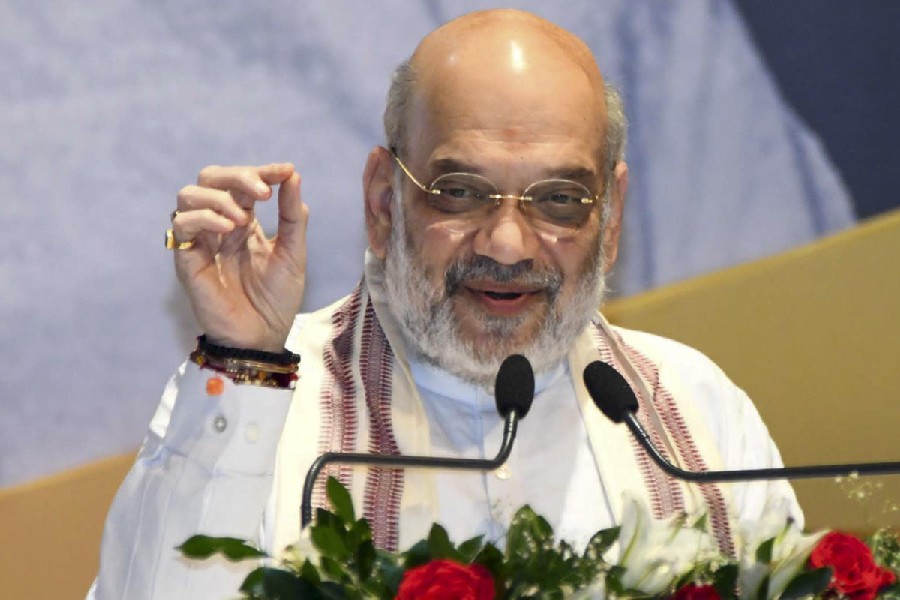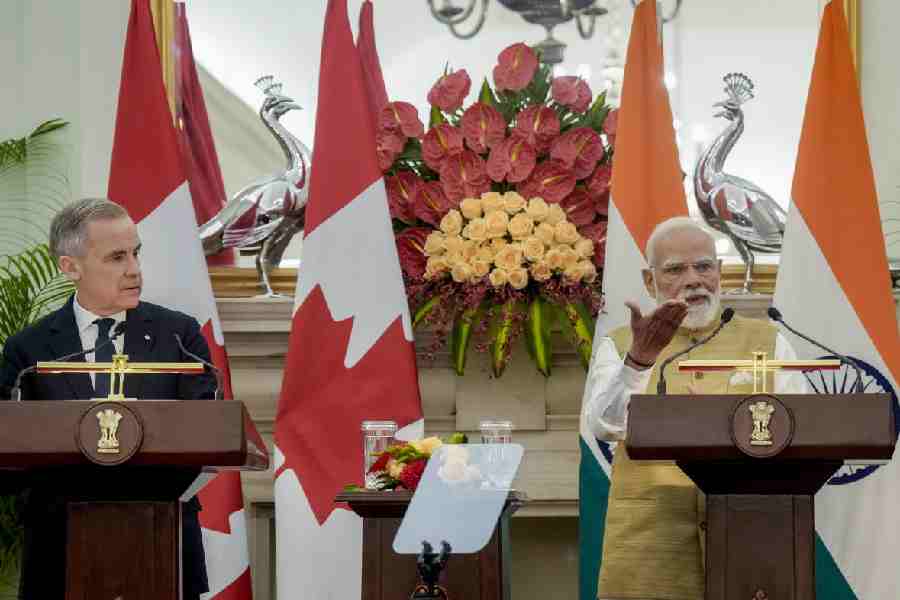 |
| Women making toys in a Bengal village. File picture |
New Delhi, March 4: The National Family Health Survey has dealt a body blow to Bengal’s record on women’s education, health and empowerment. Its findings follow similar revelations in the Sachar panel report.
The Sachar committee had showed how the CPM-led Left Front government — in power for three decades — had neglected Muslims.
The third health survey has revealed the extent of decline in the status of women, education and health.
What might embarrass the state more is that even Rajasthan and Madhya Pradesh — once part of the dubious Bimaru bracket — are making major strides in education.
Nudges from Nobel Laureate Amartya Sen don’t appear to have worked, either.
Bengal hasn’t made any gain in women’s education, which experts say improves health and empowerment like no other factor. If anything, its continued lack of focus on education has led to a slide in women’s general well-being.
More teenage pregnancies are taking place, a larger number of women face domestic violence and fewer are going to medical institutions for deliveries. “In short, women are far from empowered in the state,” said an expert.
According to the survey, only 16 per cent of women in Bengal complete 10 years of education or more. The number is 49 per cent in Kerala.
Bengal ranks alongside Orissa, which also has 16 per cent of its women studying 10 years or more. “Kerala has invested heavily in women’s education in the Integrated Child Development Scheme,” says a development expert.
NGOs in Rajasthan and Madhya Pradesh have been able to make a difference in critical areas. In education, for example, Rajasthan has made remarkable progress. Madhya Pradesh has taken big strides too: it has joined states that lead in improving the learning skills of its school students.
The survey sounds an alarm on teenage pregnancies. About 25 per cent of the women between 15 and 19 become pregnant in Bengal compared with 14 per cent in Orissa and Madhya Pradesh. In Kerala, it is only 6 per cent.
The findings bust another myth: that women in Bengal are more empowered. Only 38 per cent of the married women in the state have a say in household decisions. The figure is 63 per cent in Kerala, 55 per cent in Orissa and 47 per cent in Madhya Pradesh.
According to the survey, 40 per cent of Bengal’s women face domestic violence. This is also borne out by the state’s crime bureau record, which shows such cases going up from 4,786 in 2000 to 7,024 in 2004.
There has been a similar increase in dowry deaths and murders.











